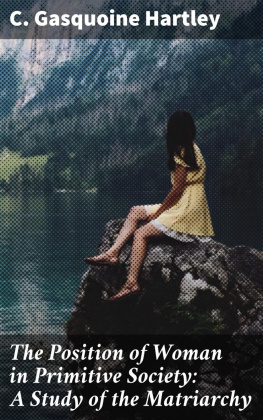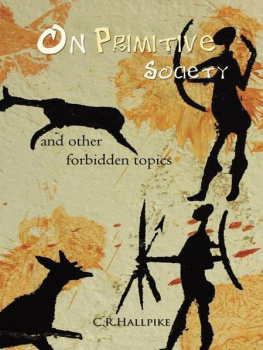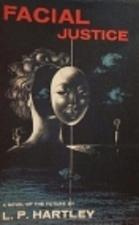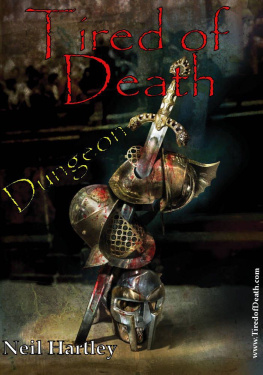CHAPTER I
Table of Contents
INTRODUCTORY
Table of Contents
The twentieth century is the age of Woman; some day, it may be that it will be looked back upon as the golden age, the dawn, some say, of feminine civilisation. We cannot estimate as yet; and no man can tell what forces these new conditions may not release in the soul of woman. The modern change is that the will of woman is asserting itself. Women are looking for a satisfactory life, which is to be determined from within themselves, not from without by others. The result is a discontent that may well prove to be the seed or spring of further changes in a society which has yet to find its normal organisation. Yes, women are finding themselves, and men are discovering what women mean.
In the present time we are passing through a difficult period of transition. There are conditions of change that have to be met, the outcome of which it is very difficult to appreciate. A transformation in the thought and conduct of women, for which the term revolution is not too strong, is taking place around us; doubtless many experimental phases will be tried before we reach a new position of equilibrium.
This must be. There can be no life without movement.
The expression, a transition period, is, of course, only relative. We often say: This or that is a sign of the present era; and, nine times out of ten, the thing we believe to be new is in reality as old as the world itself. In one sense the whole of history is a vast transition. No period stands alone; the present is in every age merely the shifting point at which the past and the future meet. All things move onwards. But the movement sometimes takes the form of a cataract, at others of an even and almost imperceptible current. This is really another way of saying that the usually slow and gradual course of change is, at certain stages, interrupted by a more or less prolonged period of revolution. The process of growth, from being gradual and imperceptible, becomes violent and conscious.
There can be little doubt that what is called the Womans Movement, with its disintegrating influences on social opinion and practice, is bringing vast and momentous changes in womens attitude towards the universe and towards themselves. A great motive and an enlarging ideal, a quickening of the womans spirit, a stirring dream of a new orderthese are what we have gained. We are carried on, though as yet we know not whither, and there is, of necessity, a little stumbling of our feet as we seek for a way. Hence the fear, always tending to arise in periods of social reconstruction, which is felt by many to-day as women pass out far beyond the established boundaries prescribed for their sex.
Whoever reflects soberly on the past history of women will not be surprised at their present movement towards emancipation. Women are reclaiming a position that is theirs by natural righta position which once they held. It may be all very well for those who accept the authority and headship of the man as the foundation of the family and of society, to be filled with bewildered fear at what seems to them to be a quite new assertion of rights on the part of the mothers of the race. But has the family at all stages of growth been founded on the authority of the father? Our decision on this question will affect our outlook on the whole question of Womans Rights and the relationships of the two sexes. There are civilisations, older and, as I believe, wiser than ours that have accepted the predominant position of the mother as the great central fact on which the family has been established.
The view that the family, much as it existed among the Hebrew patriarchs, and as it exists to-day, was primeval and universal is very deeply rooted. This is not surprising. To reverse the gaze of men from themselves is no easy task. The predominance of the male over the female, of the man over the woman and of the father over the mother, has been accepted, almost without question, in a civilisation built up on the recognition of male values and male standards of opinion. Thus the institutions, habits, prejudices, and superstitions of the patriarchal authority rest like an incubus upon us. The women of to-day carry the dead load upon their backs, and literally stagger beneath the accumulating burden of the ages.
The Womans Movement is pressing us forward towards a recasting of the patriarchal view of the relative position and duties of the two sexes. It must be regarded as an extremely great and comprehensive movement affecting the whole of life. From this wider standpoint, the fight for the parliamentary suffrage is but as the vestibule to progress; the possession of the vote being no more than a necessary condition for attaining far larger and more fundamental ends.
It is, however, very necessary to remark that the recognition of this imposes a great responsibility upon women. For one thing the practical difficulties of the present must be faced. It is far from easy to readjust existing conditions to meet the new demands. Present social and economic conditions are to a great extent chaotic. We cannot safely cast aside, in any haste for reform, those laws, customs and opinions which it has been the slow task of our civilisation to establish, not for men only, but for women. We women have to work out many questions far more thoroughly than hitherto we have done. We owe this to our movement and to the world of men. It will serve nothing to pull down, unless we are ready also to build up. Freedom can be granted only to the self-disciplined.
Thou that does know the Self and the not-Self, expert in every work: endowed with self-restraint and perfect same-sightedness towards every creature free from the sense of I and mythy power and energy are equal to my own, and thou hast practised the most severe discipline.
This little book is an attempt to establish the position of the mother in the family. It sets out to investigate those early states of society, when, through the widespread prevalence of descent through the mother, the survival of the family clan and, in some cases, the property rights were dependent on women and not on men. I start from the belief that the mother was at one period the dominant partner in the sexual relationships. This does not, however, at all necessarily involve rule by women. We must be very clear here. What I claim is this. The system by which the family was built up and grouped around the mother conferred special rights on women. The form of marriage favourable to this influence was that by which the husband entered the wifes family and clan, and lived there as a consort-guest. The wife and mother was director in the home, the owner of the meagre property, the distributor of Hence arises what is known as mother-right.
I am prompted to this inquiry by two reasons: in the first place, the origin of the maternal-system and the subsequent association of the mother and the father appear to me to afford evidence of the working of a natural law of the two sexes, which, both for social and other reasons, is of great interest in the present stage of womens history. The establishing of the mothers position is of great importance. If we can prove that women have exercised unquestioned and direct authority in the past history of human societies, we shall be in a position to answer those who to-day wish to set limits to womens activities. Then, in the second place, I am compelled to doubt certain conclusions, both of those who accept mother-right, and also of the greater number who now deny its occurrence. If I am right, and the importance of the maternal family has been unduly neglected and the true explanation of its origin overlooked, I feel that, whatever errors I may fall into, I am justified in undertaking this task. My mistakes will be corrected by others with more knowledge than I can claim; and if my theory of mother-right has any merit, it will be established in more competent hands. The vast majority of investigators on these questions are men. I am driven to believe that sometimes they are mistaken in their interpretation of habits and customs which arose among primitive societies in which the influence of women was marked. In dealing with the family and its origin it has been usual to consider the male side and to pass over the female members. This has led, I am sure, to much error.








![C.R. Hallpike - On Primitive Society and other forbidden topics [notes fixed]](/uploads/posts/book/62486/thumbs/c-r-hallpike-on-primitive-society-and-other.jpg)


